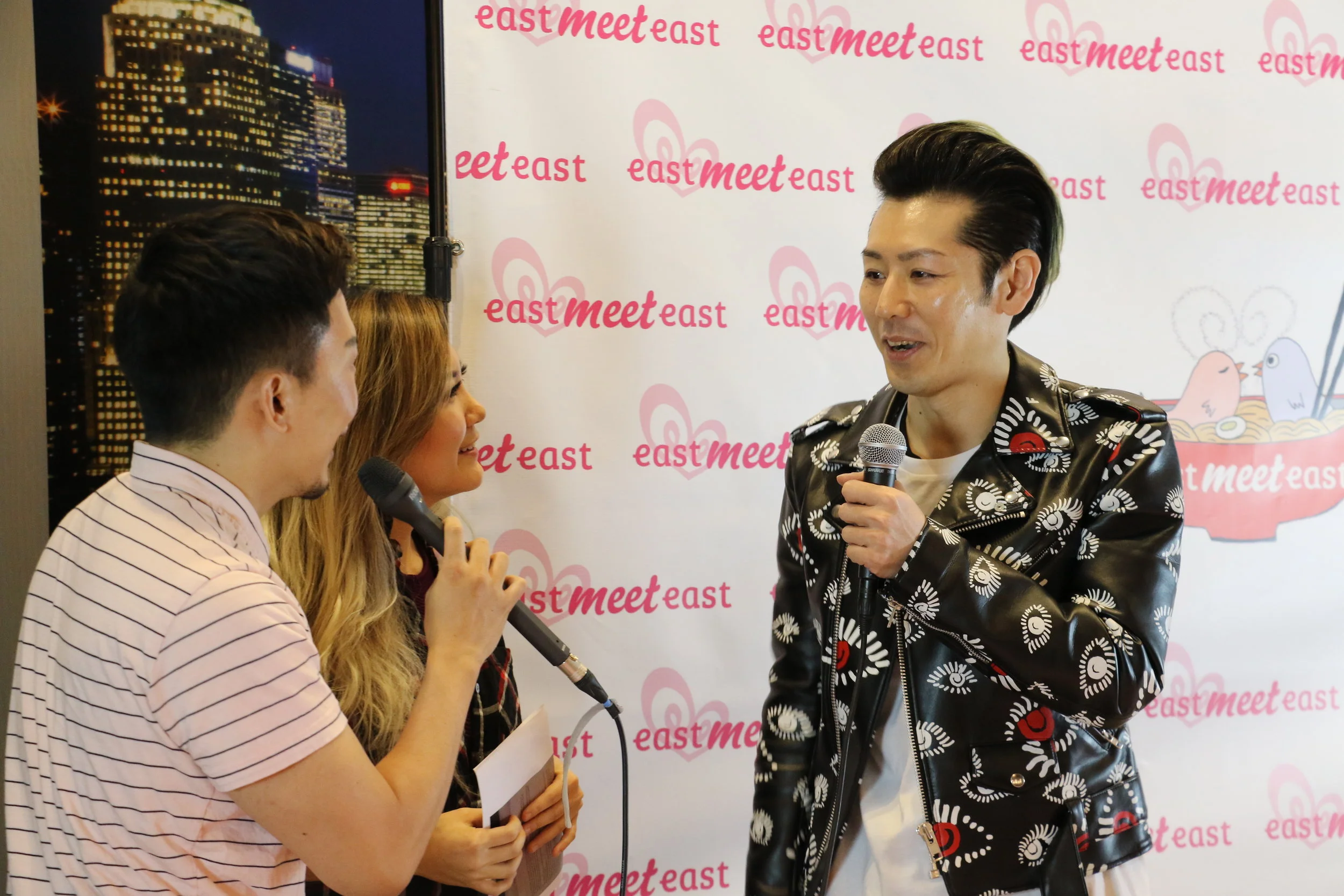Tribeca Film Festival - TIME'S UP and Natalie Dormer
The eleventh day of the 17th Tribeca Film Festival presented by AT&T collaborated with TIME’S UP to host the Day of Conversation and Action, which featured conversations with a range of women who are playing a pivotal role in raising awareness about inequality in the workplace. Activists, storytellers, business leaders, filmmakers, lawyers, media figures, and more shared their stories. Highlights included:
· Julianne Moore and Jurnee Smollett-Bell opened the day by introducing TIME’S UP with Moore saying that "our understanding of what’s acceptable has been skewed by what is normalized by society,” and calling for change.
· Saru Jayaraman (co-founder of the Restaurant Opportunities Centers United) detailed the rampant sexual harassment in the restaurant industry and demanded action.
· Sienna Miller introduced the panel, "A New Direction: Behind the Lens" with female filmmakers, and said, "[we're] not just wives and girlfriends in life...it's on all of us to pave the path and help stories be told."
· Former NFL player and advocate Wade Davis talked about the importance of starting the conversations around sexuality and sexual assault early.
· Lupita Nyong’o, Cynthia Erivo, Mira Sorvino and Amber Tamblyn talked about the roles women are cast in, the importance of telling rich stories on screen, and the impact of portraying powerful female characters in film. Erivo said, "I’m trying to make people aware that we have a choice in the way we are perceived. I see myself differently and I want that to help other young ladies get the permission to also see themselves differently."
· Marisa Tomei talked about the impact of - and introduced - the TIME'S UP Legal Defense Fund, who discussed legal wins.
· Mariska Hargitay introduced a panel about "Activism Through the Ages" during which Robin Morgan fired up the audience and also got them laughing, saying, "the women’s movement is the most fun you can have sitting up."
· Ashley Judd shared a personal letter about the fortitude it has taken and the personal empowerment she has experienced as a survivor.
· The event concluded with a speech from the CMO of TIME'S UP and a performance from the Resistance Revival Chorus.
Elsewhere at the Festival, Natalie Dormer was joined by Director Larysa Kondracki and executive producer Jo Porter for the North American premiere of their new series Picnic at Hanging Rock, a reimagining of the 1975 film. During a panel after the screening, speaking about her character, Hester Appleyard, and other characters she has chosen to play in her career, Dormer said she is attracted to “complicated women” more so than strong women. Appleyard in particular she describes as one of the most complicated, and someone who “really needs to go to therapy”. She also spoke about her hesitance ahead of taking the role, saying, “I’m not doing another corset job” before being blown away by a phone conversation with the writer.
Director Haifaa al-Mansour producer Amy Baer, and actor Douglas Booth were greeted by fans on the red carpet at BMCC for the US premiere of their new film Mary Shelley. The film tells the story of a young Mary Wollstonecraft (Elle Fanning) as she embarks on a whirlwind romance which leads her to invent one of the most iconic horror stories of all time, before she’s even 20 years old.
Laura Poitras, director of Citizenfour, The Oath, and My Country, My Country, participated in a Tribeca Talks conversation today moderated by Sheila Nevins, former president of HBO Documentary Films. Both power women admitted that they were both “mutually intimated” by each other. Nevins praised Poitras’ bravery jokingly asking her if she was “medicated in anyway or if is it natural courage.” Other topics they spoke about were the #metoo movement, the future of streaming platform, and what drew them to documentaries. Nevins even made the statement “if anyone can change the world with a documentary, it would be Laura.”
Nebraska natives Alexander Payne and Dick Cavett took part in the Tribeca Talks: Directors series today. The two traded stories about some of the most prolific actors they’ve worked with throughout their careers, including Jack Nicholson, Mike Nichols, Marlon Brando, and George Clooney, who Payne worked with on 2011’s The Descendants. Speaking about fame, Payne told a story about how Clooney’s Kentucky town approached him about naming a street after him. When they asked what street name they should change to “George Clooney Boulevard,” instead of choosing Main Street, Clooney asked “where does so and so live,” referring to his former bully. That way, Clooney’s former bully would have “George Clooney Blvd” on his driver’s license and every time he writes a check.
Closing night featured the first part of Showtime’s new four-part documentary The Fourth Estate which gives an inside look at The New York Times as they track Trump’s first year in office. Ann Curry moderated a conversation after the screening with The New York Times Executive Editor Dean Baquet, Washington Bureau Chief Elisabeth Bumiller, White House Correspondent Julie Davis, Washington Investigative Correspondent Mark Mazzetti, director Liz Garbus, and producer Jenny Carchman. Curry noted the term “embedded” in journalism is usually associated with the military, but after seeing this film it does seem that they are in a “war for figuring out what’s truth” during this “unpredictable presidency.” Speaking of Trump, Bumiller responded “he says three different things in the same day, so you do the best you can” which triggered laughter from the audience. The panel then spoke about how Trump and the media have a strained relationship. Garber explained that once “Hillary Clinton [was done being] his main punching bag, it became the press.” Davis said they are “always vetting” their information while Baquet added that the press must cover “aggressive and fair.” Davis noted for this project they made it a point to film the journalists in their homes to show they are “full people, not just by-lines or talking heads” and while filming in the newsroom, Garber said the crew worked with them to “protect their sources and make them feel more comfortable to let us in.”










